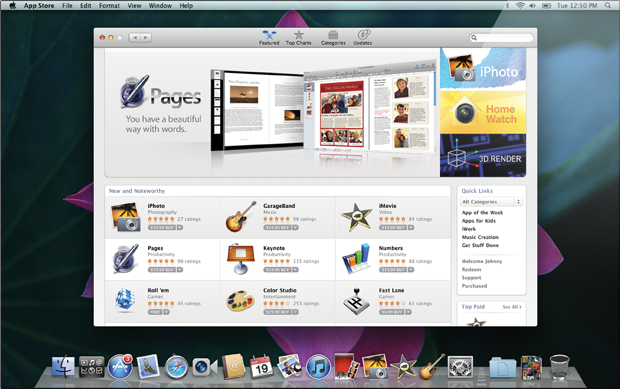The apparent success of Android isn't spilling over into Google's parallel Chrome OS project. The official launch of the new operating system has already slipped into the middle of next year, but now critics of all stripes are calling into question whether it's even a good idea.
Tale of Two OSs
Earlier today, Gmail creator Paul Buchheit, who has since left Google for Facebook before founding FriendFeed, predicted via Twitter: "ChromeOS will be killed next year (or “merged†with Android)."
According to a report by TechCrunch, Buchheit further clarified his thoughts later by adding, "Chrome OS has no purpose that isn’t better served by Android (perhaps with a few mods to support a non-touch display). [...] I was thinking, 'is this too obvious to even state?', but then I see people taking Chrome OS seriously, and Google is even shipping devices for some reason."
That report also noted that Google's chief architect of Chrome OS, Matthew Papakipos, "left Google over the Summer — for a job at Facebook, Paul Buchheit’s most recent former employer."
In November, a report by Tom Krazit of CNET examined the duality of Google's OS approach, noting that while Google's chief of Android development Andy Rubin originally said that device makers "need different technology for different products," founder Sergey Brin has more recently has stated that "Android and Chrome will likely converge over time."
While both Android and the Chrome OS are built on top of the Linux kernel, neither exposes much if any of the typical Linux user environment. Android is essentially a modified version of JavaME, while Chrome OS uses HTML5 to build its apps.
Google employees have previously stated that the company sees web apps as the future, making it more likely that Android would merge into Chrome OS, rather than Chrome OS being incorporated a part of the existing Android.
Putting two and two together
Microsoft's chief executive Steve Ballmer has taken potshots at Google's dual OS strategy, telling his audience of Windows developers in January, "I don't know if they can't make up their mind or what the problem is over there, but the last time I checked, you don't need two client operating systems [Android and Chrome OS]. It's good to have one."
Ironically, Microsoft itself offers dual operating systems, with Windows 7 targeted at conventional computers and netbooks, while its media players and smartphones run a completely different Windows CE kernel and use their own unique development frameworks. Microsoft also spent most of the 90s trying to harmonize its DOS-based Windows with its new Windows NT operating system, a project that took far longer to complete than originally anticipated.
In contrast, Apple uses a single core OS and a unified set of development tools across its entire lineup, from the iPhone and iPod touch to the iPad and Apple TV and its Mac OS X computers. A decade ago, however, Apple was torn between its old Classic Mac OS and the new NeXTSTEP OS it had acquired from Steve Jobs' NeXT. It struggled for more than half a decade to merge the two.
The"careless" cloud
Meanwhile, on the other end of the spectrum, GNU founder Richard Stallman has derided Chrome OS as an attempt to "push people into careless computing," according to a report by The Guardian.
Stallman orchestrated the Free Software movement, which promotes a specific type of freedom in software: the ability of users to modify their own software as they see fit, rather than being stuck with commercial, proprietary software they can't modify. Stallman's GNU software makes up the upper portion of most Linux distributions and portions are incorporated into Apple's Mac OS X.
The problem Stallman outlines for Chrome OS isn't proprietary software (Chrome OS is an open source project), but rather the fact that Google is using it to create a new kind of cloud-based computing environment where most of users' data is stored on Google's servers.
"Two years ago," the report stated, "Stallman, a computing veteran who is a strong advocate of free software via his Free Software Foundation, warned that making extensive use of cloud computing was 'worse than stupidity' because it meant a loss of control of data." By hosting all their data on the cloud, users would be ceding control of their information to other parties, giving up legal rights in the process, Stallman warned.
"In essence, Chrome OS is the GNU/Linux operating system," Stallman stated. "However, it is delivered without the usual applications, and rigged up to impede and discourage installing applications. I'd say the problem is in the nature of the job Chrome OS is designed to do. Namely, encourage you to keep your data elsewhere, and do your computing elsewhere, instead of doing it in your own computer."
Stallman added, "I think that marketers like 'cloud computing' because it is devoid of substantive meaning. […] Perhaps the term 'careless computing' would suit it better."
The cloudy future
Apple's current answer to cloud computing, MobileMe, has largely served as an optional way for users to backup, sync, and publish information that lives on the users' local computer. Chrome OS takes this a set further in moving most of the users' data online, shifting the personal computer into a web terminal that accesses information stored almost entirely in the cloud.
Microsoft has hinted at having a similar cloud-centric plan for its upcoming Windows 8. Apple's future plans for Mac OS X Lion revolve around local apps the user can buy online and download to use locally, much like the iOS.
 Daniel Eran Dilger
Daniel Eran Dilger







-m.jpg)






 Wesley Hilliard
Wesley Hilliard

 Oliver Haslam
Oliver Haslam
 Christine McKee
Christine McKee
 Amber Neely
Amber Neely
 Andrew Orr
Andrew Orr

 Sponsored Content
Sponsored Content







132 Comments
It is CARELESS computing for sure. The BIG brother can get your info easier without a court order. Why will anyone want to keep their personal information on any server.
With Chrome OS and other cloud-based computing, everything you do is out of your control. I will not attempt it, even if they pay me to use it. It is a disastrous proposition.
You are forewarned!
Does anyone really care what Steve Baldmer has to say any more?
Microsoft should be scared. Chrome OS offers a lightweight OS for Atom-based and other slower machines that Windows OS (desktop) can't match while also being easy to use, which no version of common Linux-builds on a netbook can match. I can see Chrome OS quickly capturing a great deal of MS' Windows business in a very short time.
I think that the Chrome OS as a true OS in which a person would only work is a failed idea. We need local storage for privacy and convenience, and I personally wouldn't trust all my data or information to the cloud, anyone's cloud, be it Apple, Google, or Microsoft. The cloud is good for a few things, but seriously, I worry that we would be trusting it too much. We get all this fun for free now, but just think where it is going. (Like, the pay for web apps in Chrome Web Store? That's just the beginning!) I don't really like where its all headed.
However, a quick booting OS that can boot within seconds that only gives you the web, I think is a great idea. I don't want to be waiting for a full OS, with all of its services to load up just to check something online, (Yes yes, we all know of the MacBook Air) or even to have a full OS to do just that. If they can get it so standard computers/netbooks/notebooks can boot to a web browser in under 10 seconds, then I am game. For some, buying a whole new computer/tablet would be out of the question, so bringing added usability to our existing computers would be fantastic!
All that said, AI, just exactly how much do you hate anything non-Apple? If you haven't noticed already, articles in this kind of tone make for some testy forums. Granted, it gets you hits... mine included.
Has anyone ever really cared what Steve Baldmer has to say?
Fixed!!